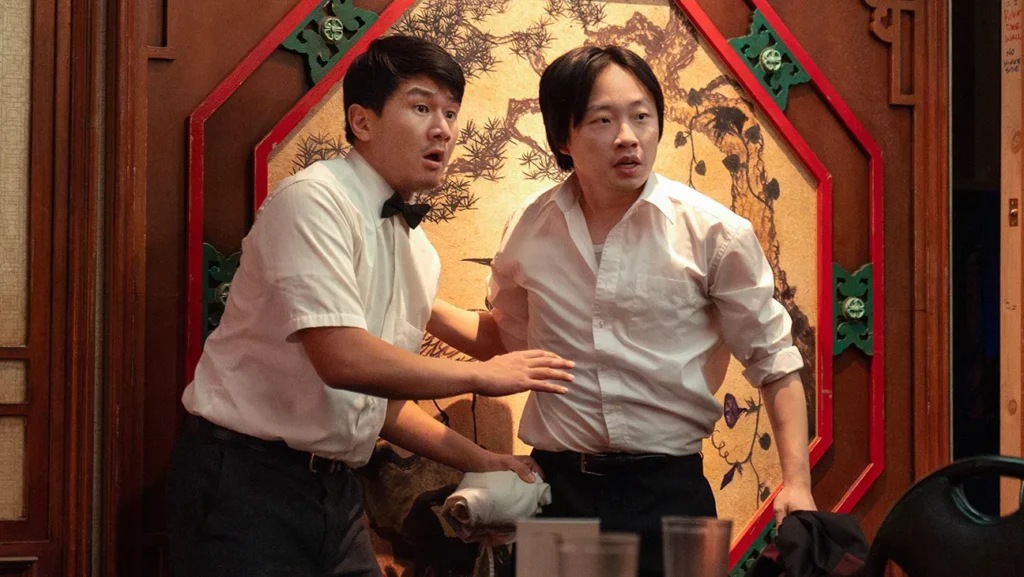
Interior Chinatown is a 2020 novel by Charles Yu that has captivated readers with its unique structure and powerful commentary on race, identity, and representation. The novel, which blends humor and deep social criticism, is set within the confines of a Chinatown TV set, making it a fascinating exploration of Asian American life and stereotypes. This post will examine the key themes, narrative structure, and impact of “Interior Chinatown,” while also considering why it resonates with so many readers today.
Table of Contents
The Narrative Structure: A Story Within a Story

Interior Chinatown is presented as a screenplay, with the protagonist, Willis Wu, playing the role of “Generic Asian Man.” Yu uses this format to provide readers with a layered experience where the boundaries between reality and fiction are blurred. This structural choice not only reflects the novel’s themes but also pushes the boundaries of how stories about race and identity are told in literature.Know More
Cultural Critique and Social Commentary
While Interior Chinatown is comedic at times, it is also a sharp critique of the cultural and social dynamics within America. Through the lens of a fictional Chinatown TV show, Yu tackles the broader issues of race, systemic racism, and the complexities of being an immigrant or child of immigrants in America.
Themes of Identity and Stereotyping
Yu’s novel explores the complexity of Asian American identity and the impact of systemic stereotyping. The characters in Interior Chinatown are trapped in roles that limit their personal growth, mirroring the constraints that real-life Asian Americans often face in the entertainment industry and society at large.
Stereotypes in Media
The novel takes aim at the way Hollywood and the broader media industry often reduce Asian American characters to stereotypes, such as the “sidekick” or “martial artist.” By using the screenplay format, Yu invites readers to consider how these stereotypes limit opportunities and representation for people of color.
Reflections on the Asian American Experience
The novel also serves as a mirror to the broader struggles that Asian Americans face today—balancing cultural expectations, personal aspirations, and the limitations imposed by others’ perceptions. Through Willis Wu’s journey, readers are invited to reflect on their own cultural identity and the societal structures that shape their lives.
About the Author:
Charles Yu is a celebrated author whose works have captured the complexities of identity, race, and the immigrant experience in contemporary America. Known for his unique blend of humor, science fiction, and social commentary, Yu has carved a distinct space in the literary world.
In interviews, Charles Yu has often reflected on the personal and philosophical questions that shape his writing. One of his key themes revolves around identity—particularly the sense of being caught between two cultures as a second-generation immigrant. He has shared how he’s always been “obsessed with these questions: Who am I? How did I get here? What am I doing in this place?” These existential queries are central to his work, and they form the foundation of the characters he creates, like Willis Wu in Interior Chinatown.
Yu’s exploration of race and stereotypes is deeply personal. As he notes, much of his writing comes from a desire to understand the role that stereotypes play in shaping a person’s identity. This thematic thread is particularly prominent in Interior Chinatown, where he critiques Hollywood’s portrayal of Asians and Asian-Americans. Through his protagonist, Willis Wu, Yu examines how cultural representation—both on and off-screen—can confine individuals to predefined roles, limiting their sense of self and their aspirations.
In terms of his writing process, Yu has humorously mentioned that he organizes his books “vertically, in a column next to my bed.” This seemingly chaotic system, which is highly vulnerable to gravity, is a reflection of Yu’s down-to-earth approach to his work. Despite his skill in blending humor and serious topics, Yu’s process is characterized by spontaneity and a willingness to embrace the unpredictable.
Yu’s work continues to resonate with readers because of his ability to tackle heavy, complex subjects through a lens of sharp wit and relatable humanity. As he continues to break barriers in both literature and television—writing for shows like Westworld and Legion—Yu’s voice remains one of the most important in contemporary fiction. His exploration of Asian-American experiences, media representation, and the search for identity offers readers a profound reflection on both individual and collective experiences.
Conclusion
Interior Chinatown is more than just a novel—it’s a commentary on the intersection of race, culture, and identity in America, making it an essential read for those looking to understand the Asian American experience and the impact of media portrayals.
Read our previous post.

[…] […]
[…] Read our last post […]